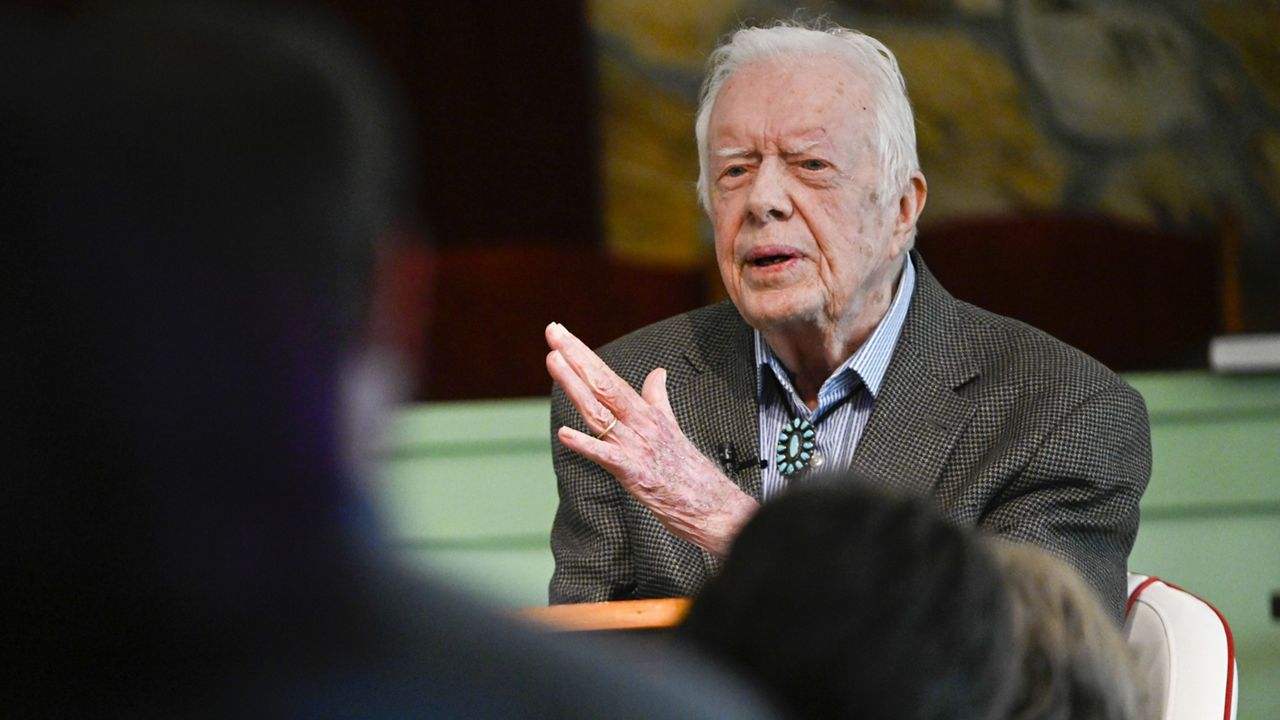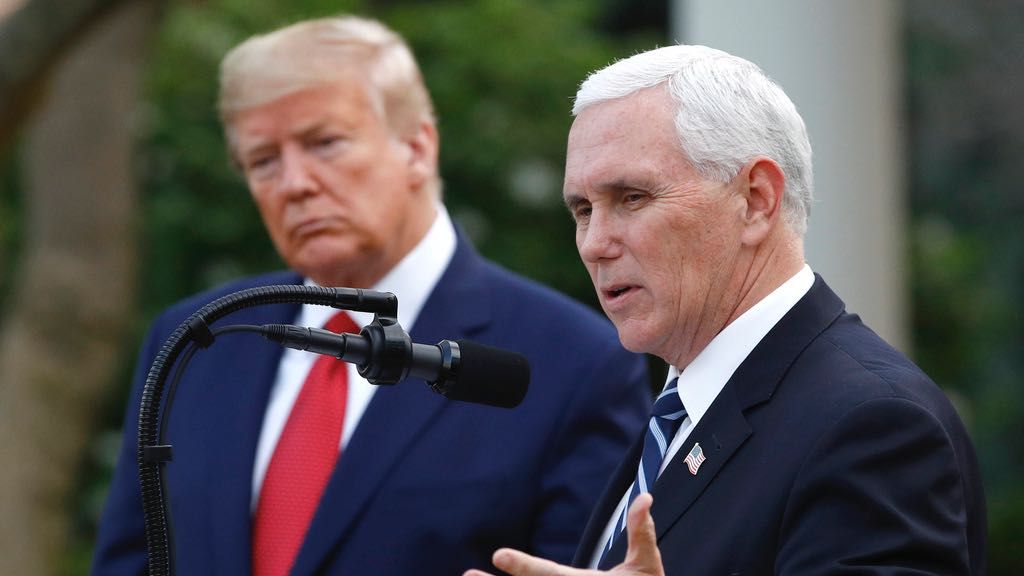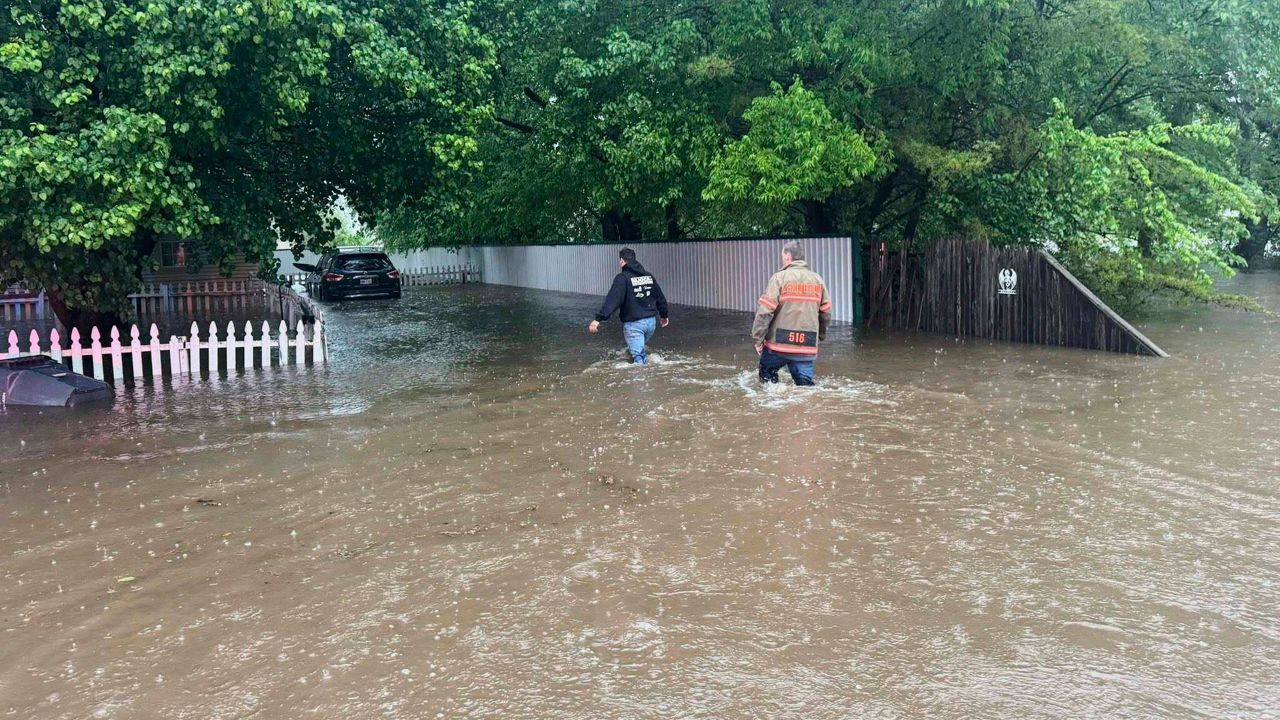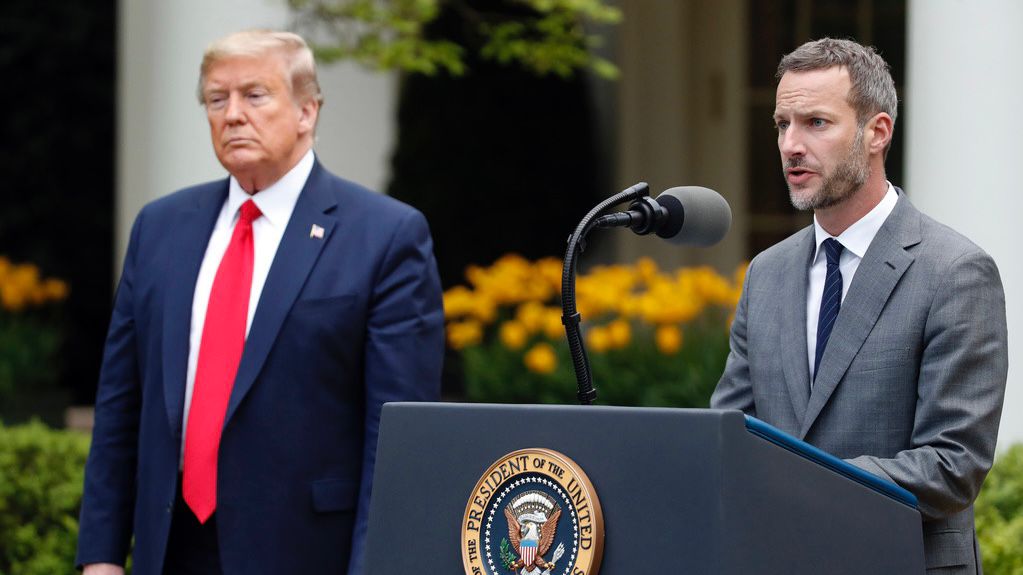Jimmy Carter, the oldest living and longest-lived U.S. president, added another milestone on Tuesday.
The philanthropist, humanitarian and the 39th President of the United States became the first former president to celebrate his 100th birthday.
"President Carter’s legacy continues to inspire hope and progress worldwide," the Carter Center, the human rights nonprofit he co-founded with his wife, Rosalynn, more than 40 years ago, said in a statement. His century of life is a testament to the power of service, and The Carter Center stands as an enduring reminder of his commitment to peace, health, and human rights."
Carter, who entered home hospice care 19 months ago, has had the longest post-presidency of anyone to ever occupy the Oval Office, is the fourth-oldest living world leader, and had the longest marriage of any U.S. president to his beloved Rosalynn, who died almost a year ago at age 96.
President Joe Biden, who at 81 is the oldest man to hold the office, shared his birthday greetings for Carter in a video message on Sunday, telling the centenarian: "I admire you so darn much."
"Mr. President, you've always been a moral force for our nation and the world," Biden said in a video greeting shared with CBS News. "I recognized that as a young senator. That's why I supported you so early. You're a voice of courage, conviction, compassion, and most of all, a beloved friend of [first lady Jill Biden] and me and our family."
"You're one of the most influential statesmen in our history," the president continued. "Even after you left office, the moral clarity you showed throughout your career showed through again in your commitment through the Carter Center and Habitat for Humanity – resolving conflicts, advancing democracy, preventing disease, and so much more. It's transforming the lives of people not only at home but around the world. Put simply, Mr. President, I admire you so darn much."
To celebrate the milestone, the White House erected a large tribute to Carter on the White House lawn: A large "100" with the message "Happy Birthday President Carter" beneath the triple-digit figure.
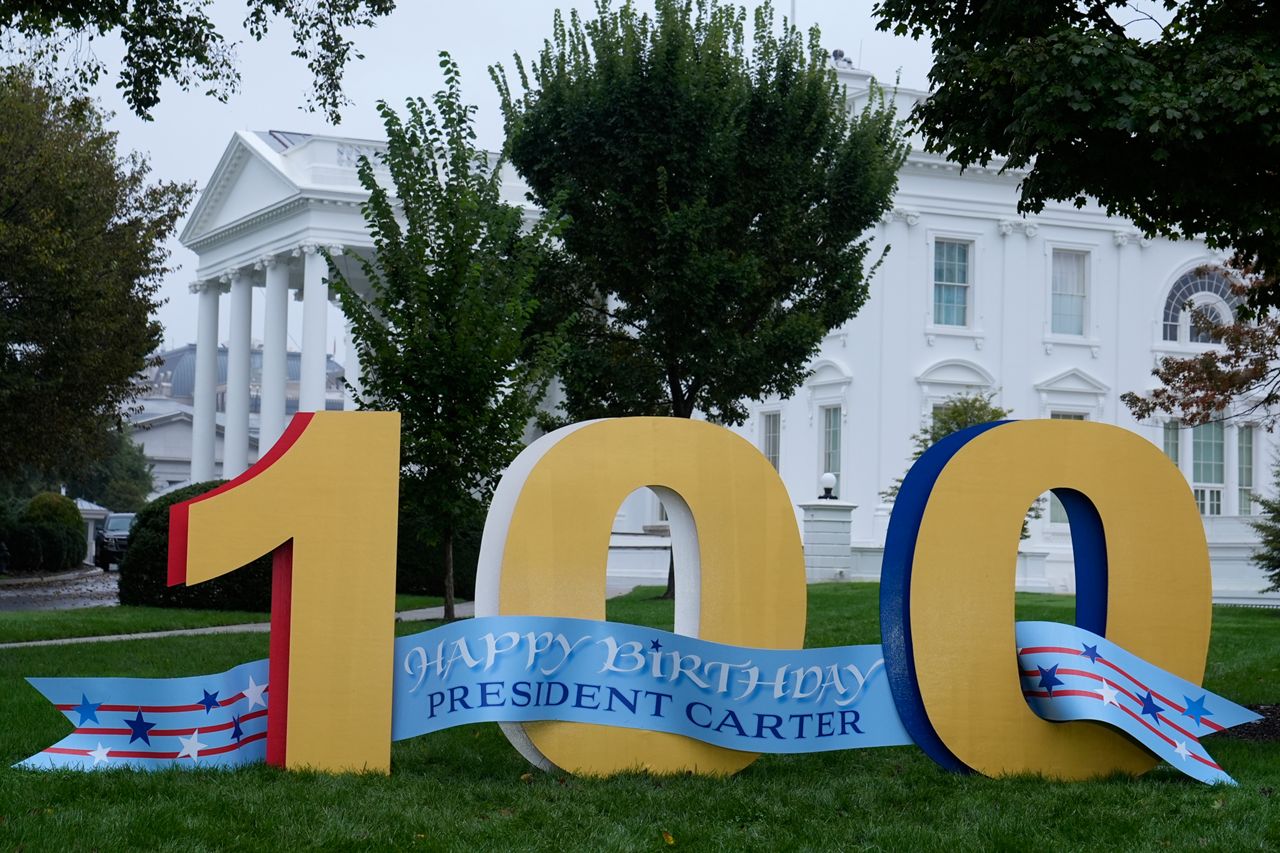
Born in Plains, Georgia on Oct. 1, 1924 — he was the first U.S. president to be born in a hospital — Carter was the oldest child of Lillian Gordy Carter, a nurse, and James Carter Sr., a farmer and businessman.
Carter attended public school in Plains before attending the U.S. Naval Academy, where he met the love of his life, Eleanor Rosalynn Smith — the woman who eventually became the first lady of the United States, and his wife of more than three-quarters of a century.
"I thought he was the most handsome young man I had ever seen," Rosalynn wrote in her 1984 memoir, "First Lady from Plains.”
The two went on their first date in 1945, when he was at home from the academy and she had completed her first year at Georgia Southwestern College.
Carter rose to the rank of lieutenant in the U.S. Navy, serving as a submariner in both the Atlantic and Pacific fleets. He was selected for the nuclear submarine program and was assigned to do graduate work at Union College in Schenectady, New York, intending to work on the USS Seawolf, the second nuclear submarine.
But after his father died in 1953, Carter resigned his commission to take over his family’s businesses in Georgia, including the family’s now-iconic peanut farm.
Back in Plains, Carter became an influential leader in the community, even becoming a member of the school board in 1956 and later becoming its chairman. Eventually, Carter was elected a Georgia state senator in 1962 before seeking the nomination to serve as the state’s governor in 1966.
Though Carter lost the Democratic primary, the race catapulted him to statewide prominence and helped him in 1970 when he successfully sought the governorship.
As Georgia’s chief executive, Carter emphasized efficiency in government, reorganizing the state’s government to rein in bureaucracy.
“Not only did we make possible the savings of millions of dollars in administrative costs, we made the whole operation much more efficient and much more responsive to the needs of the people,” Carter told the New York Times in 1976. “I'm proud, really very proud of that.”
Carter also drew nationwide attention for vetoing a plan to build a dam along Georgia’s Flint River, a groundbreaking decision at the time. Carter determined that the Army Corps of Engineers underestimated the environmental impact on the region, as well as the cost of the project.
With Georgia’s constitution preventing him from seeking a second consecutive term, Carter had his sights set on a higher office: The White House.
On Dec. 12, 1974, Carter announced that he would seek the Democratic nomination to run for president in the 1976 presidential election. Carter was considered an underdog at first against candidates with stronger name recognition — including California Gov. Jerry Brown, Alabama Gov. Jerry Wallace and Ariona Rep. Mo Udall — but after strong performances in the Iowa caucuses and the New Hampshire primary, he built a strong coalition in Southern states and won the nomination.
Choosing Minnesota Sen. Walter Mondale as his running mate, Carter went on to challenge then-President Gerald Ford, the first unelected president to take office after Richard Nixon’s resignation in 1974.
Carter ran as an outsider to Washington and a reformer, taking advantage of Ford’s unpopular pardon of Nixon in Sept. of 1974, as well as a poor economy and the fall of South Vietnam to win the 1976 presidential election — the first time in 44 years that an incumbent president was defeated.
On his first full day in office, Carter issued an unconditional pardon to the hundreds of thousands of Americans who evaded the draft for the Vietnam War. Veterans of the war and others disagreed with the pardon, while anti-war activists criticized the action for not going far enough, namely for not addressing deserters.
Carter also created two new Cabinet positions: The Secretary of Energy, after signing into law The Department of Energy Organization Act of 1977 to address, in part, the energy crisis of the 1970s, and the Secretary of Education, following the establishment of the Department of Education, separating it from the Department of Health, Education, and Welfare. (The Department was renamed the Department of Health and Human Services.)
Taking office toward the latter part the Cold War, Carter notched a number of significant foreign policy accomplishments, including the negotiation of the Camp David Accords between Egypt and Israel, which led to the 1979 peace treaty between the two nations, making Egypt the first Arab country to formally recognize Israel. Carter also oversaw the normalization of diplomatic relations with China and negotiated the Strategic Arms Limitation Talks (SALT II) treaty with the Soviet Union.
But the SALT II treaty fell apart after the Soviet invasion of Afghanistan in 1979 — the terms treaty, while not ratified by either side, was respected until 1986 — and on Nov. 4, 1979, a foreign policy emergency took hold that gripped the last year of Carter’s presidency: The Iran Hostage Crisis.
A group of militarized Iranian college students stormed the U.S. Embassy in Tehran, seizing the building and taking dozens of people hostage. While some hostages were released in the following weeks, the vast majority were held for 444 days — until Carter’s last day in office, Jan. 20, 1981.
The hostage crisis is considered by several experts as a major contributor to Carter’s electoral loss in 1980. Despite exerting economic and diplomatic pressure on Iran, and signed off on Operation Eagle Claw, a failed rescue operation that resulted in the deaths of eight American soldiers.
Domestically, Carter faced a number of issues, including the 1979 energy crisis and economic “stagflation,” with the U.S. economy experiencing low growth, but high inflation. Though Carter was successful in adding nearly 8 million jobs by the end of his term and decreasing the budget deficit, his policies could not overcome the country’s perilous economic situation.
Carter’s domestic and foreign policy issues left him with very low approval ratings and rendered him vulnerable in the 1980 presidential election. Carter faced a tough primary challenge from Massachusetts Sen. Ted Kennedy, an influential and popular lawmaker.
Though Kennedy overcame Carter in several states, leading to an ugly, brokered 1980 Democratic National Convention, Carter emerged victorious.
Enter Ronald Reagan: The former Republican California governor defeated Carter in a landslide, winning 44 states and 489 electoral college votes, as well as a 9.7% margin in the popular vote.
Returning to Plains, Georgia, Carter discovered that his family’s peanut farm, which he left in blind trust to avoid conflicts of interest, was $1 million in debt after mismanagement.
“We thought we were going to lose everything,” Rosalynn told the Washington Post.
Forced to sell the business, Carter began writing books as a source of income. A prolific author, Carter wrote numerous after leaving the White House, ranging from presidential memoirs to books about faith, and even a children’s book, “The Little Baby Snoogle-Fleejer,” illustrated by his daughter, Amy.
In 1982, with Atlanta’s Emory University, the Carters founded The Carter Center, a nonprofit, nongovernmental organization based “on a fundamental commitment to human rights and the alleviation of human suffering” seeking “to prevent and resolve conflicts, enhance freedom and democracy, and improve health,” according to its mission statement on its website.
The Carter Center has observed 113 elections in 39 countries since 1989, and has also mediated conflict in a number of countries, including Ethiopia and Eritrea, North Korea, Bosnia and Sudan. The center has also worked to advance human rights worldwide.
Carter received the Nobel Peace Prize in 2002 for his work with the Carter Center “to find peaceful solutions to international conflicts, to advance democracy and human rights, and to promote economic and social development.”
Carter stayed active in politics after leaving the White House, offering counsel to, and criticism of, his successors, but largely stayed out of the public spotlight.
He has had a long history with the charity Habitat for Humanity. Through their annual Jimmy and Rosalynn Carter Work Project (due to the COVID-19 pandemic, the 2020 and 2021 events did not take place), the Carters have helped to build, renovate and repair 4,390 homes in 14 countries alongside more than 104,000 volunteers through their annual work project, according to Habitat for Humanity.
Carter built homes in New Jersey in the aftermath of Hurricane Sandy, and even participated in a Habitat event at 95 after suffering a fall in his home, which required stitches.
In 2017, the Carters attended Trump’s inauguration, making him the oldest president to attend a swearing-in, but did not attend President Joe Biden’s inauguration in 2021 due to the COVID-19 pandemic, the first time he missed the event since his own in 1977. Biden, a young Delaware senator and an ally to President Carter during his time in the White House, visited him and Rosalynn in 2021 during a trip to Georgia to mark his 100th day in office.
He appeared in a public service announcement in 2021 with former Presidents Barack Obama, Bill Clinton and George W. Bush urging Americans to get vaccinated; the only living ex-president who did not participate was Donald Trump.
In 2022, he penned an op-ed for The New York Times on the anniversary of the Jan. 6, 2021, insurrection at the U.S. Capitol to express dismay about political polarization and the threat to American democracy, and called for reforms to protect our elections.
“I now fear that what we have fought so hard to achieve globally — the right to free, fair elections, unhindered by strongman politicians who seek nothing more than to grow their own power — has become dangerously fragile at home,” Carter wrote.
“Our great nation now teeters on the brink of a widening abyss,” he warned. “Without immediate action, we are at genuine risk of civil conflict and losing our precious democracy. Americans must set aside differences and work together before it is too late.”
Since entering home hospice care in February of last year, President Carter has largely remained out of the public eye, save for his attendance at memorial services for Rosalynn Carter, his wife of more than 75 years.
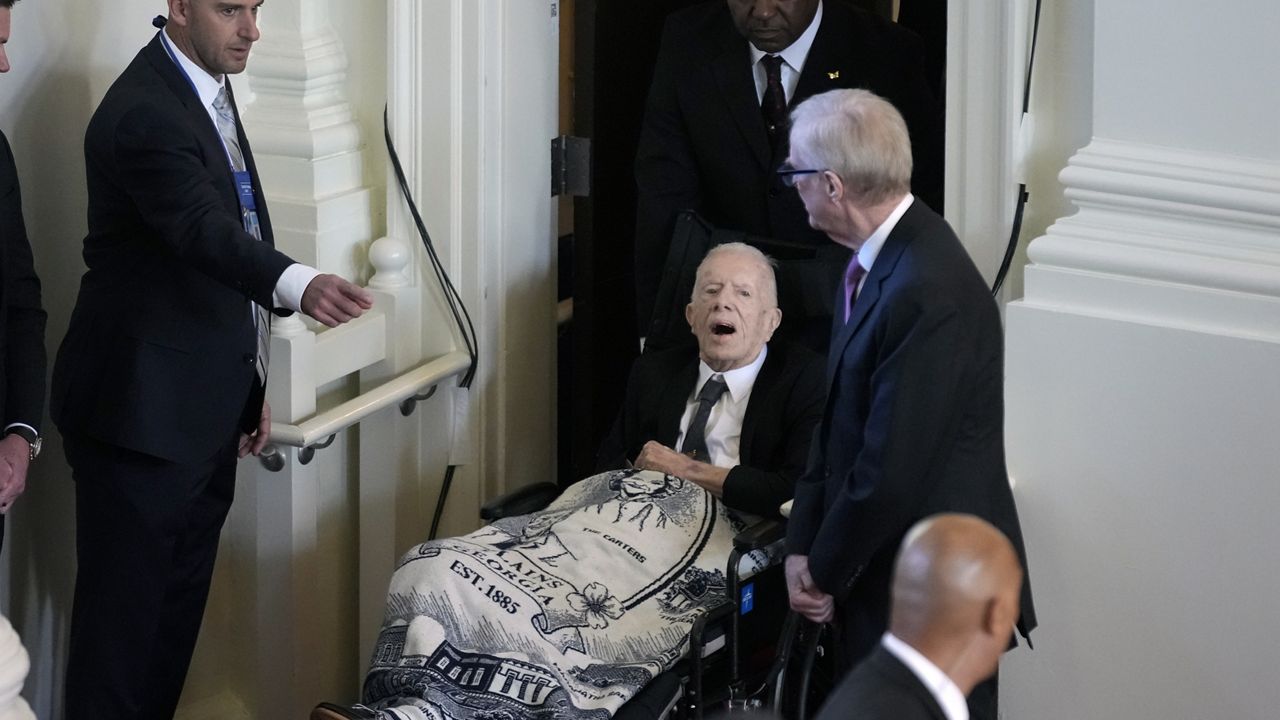
More recently, Carter has reportedly been energized by the prospect of Vice President Kamala Harris' candidacy in November's election, and has told family members that his goal is to live long enough to cast his ballot for the Democratic nominee.
"Paw paw is holding on, he is hopeful," grandson Jason Carter said at the Democratic National Convention in Chicago in August. "Though his body may be weak tonight, his spirit is as strong as ever. My grandfather can't wait to vote for Kamala Harris."
Early voting begins in Georgia on Oct. 15.
Harris, for her part, said that the world is better because of Carter's "leadership," "work" and "commitment to peace, to decency, to democracy."
"Thank you for everything you are, everything you mean to our country, everything you mean to our world," she added.
Numerous other tributes poured in from leaders worldwide, including former President George W. Bush, who wished his "fellow president" a happy 100th birthday.
"You've had a heck of a live and you're surrounded by people who love you," Bush said in a video message issued by his presidential library. "May God bless you in your final years, may you have peace in your mind and peace in your heart."
Carter's hometown of Plains, where he has lived for decades, is set to hold a concert on Tuesday to celebrate Carter's legacy, following a musical gala last month that raised $1.2 million for the Carter Center, in addition to other events to hail their most famous resident. Habitat for Humanity volunteers in Minnesota are planning to build 30 houses in five days to honor Carter's birthday.




